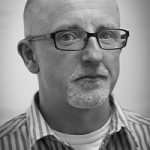Aphorisms abound in medical education, not least in assessment:
“Assessment drives learning” or “One can recover from bad teaching but not bad assessment.”
Whilst there is common acceptance of these saws it doesn’t always translate into practice. Often assessment in curricula is added at the end in response to the question of how what has been taught should be assessed. There is frequently little focus on how assessment impacts on learning. Even looking at resource allocation, assessment is often seen as subsidiary to teaching rather than being of equal, or arguably greater, importance.
There are also common misperceptions about what can be gleaned from assessment data. The pendulum has begun to be a swing back away from ‘hard’ data from psychometric analysis to valuing judgment. The Scottish philosopher David Hume identified in the 1700s that data does not equate with reality yet psychometrics are often seen to be the true measure of the quality of examinations. As our clinical assessments currently stand we tend to focus on spotting divergent practice, Heidegger’s vorhanden. At the same time we miss zuhanden type errors where what is common is misperceived as correct. An example being the use of “subjective” and “objective” in describing mood.
So if we as an institution are serious about our courses what can we do to address this? As a first step we need to raise the profile of assessment. Currently there is no specific module on assessment in the Certificate of Medical Education, this is going to change as a new module is introduced next year. Next, whilst two courses on assessment of medical students have been delivered in NUMed we will start delivering these and other focussed courses in the medical school.
These steps alone are insufficient. If one has an interest in assessment there are no structures that currently would support personal development beyond this. Whilst some local sharing takes place, where shared interests are known, there is no way to make this routine. We could take this forward by setting up an FMS special interest group in assessment but innovation in assessment is not restricted to our faculty and what is being done in the other faculties or beyond the bounds of the University could drive our practice forward. As an academic institution the philosophy of assessment should be considered; why we do it and why we do it the way we do.
I’d like to suggest that we start such a group. Perhaps first by working within FMS but with an intention to broaden out to the whole University. If you might be interested in this drop me an email at brian.lunn@ncl.ac.uk and I’ll look to get a first meeting set up.
Brian Lunn, Strategic Teaching Fellow, SME

